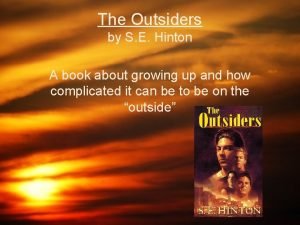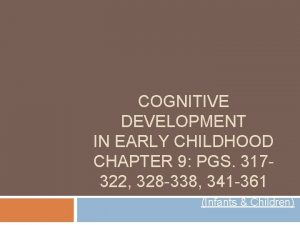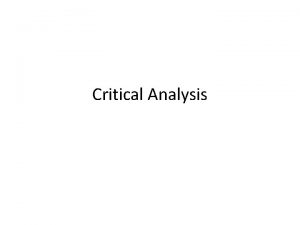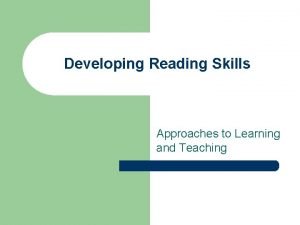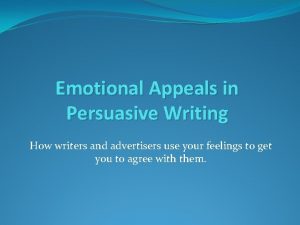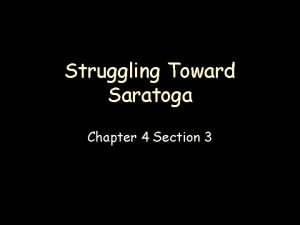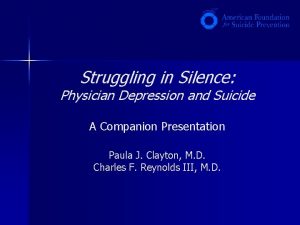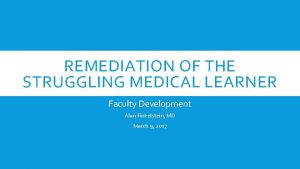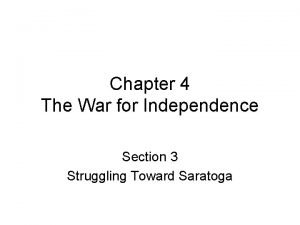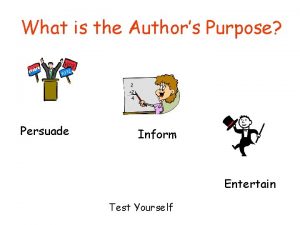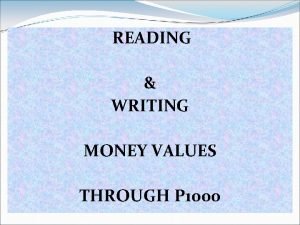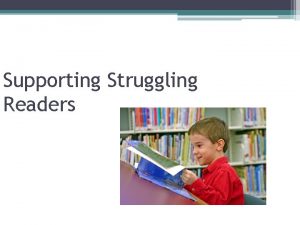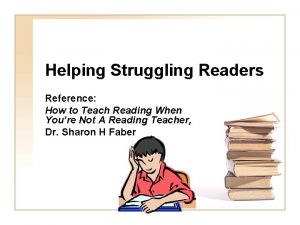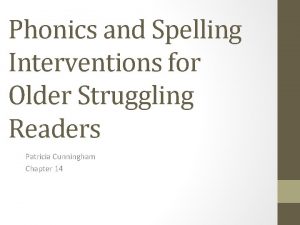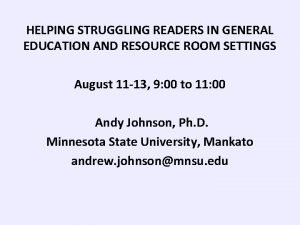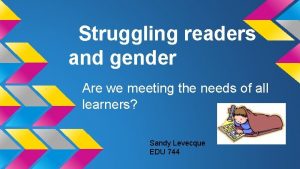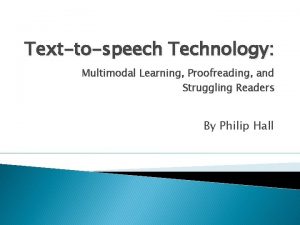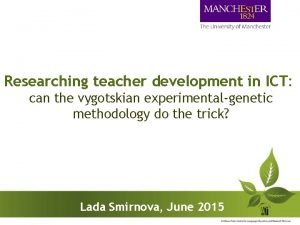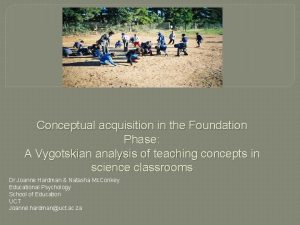Reading and Writing with Struggling Readers A Vygotskian










- Slides: 10

Reading and Writing with Struggling Readers A Vygotskian Approach Isabel Peters De Activiteit National Center for Developmental Education Alkmaar, the Netherlands

Overview • Cultural-historical view on learning disabilities • Setup of the study • The approach to struggling readers • Conclusions

Cultural-historical view on learning disabilities • Coles (1987): schools can create learning disabilities • Vygotsky (1978): development is socially mediated • Peters & Van Oers (2007): teachers adopt a different approach to children they consider to be at-risk

Vygotsky: “Compensation, the individual’s reaction to a defect, initiates new, roundabout developmental processes - it replaces, rebuilds a new structure, and stabilizes psychological functions. ” (1993, p. 34)

Setup of the study Research question: Does the strategy ‘spelling’ (sounding out letters and blending them together) has a compensating function for struggling readers?

• Series of case studies in two classrooms (Yin, 1994) • 2 boys and 2 girls (6, 7 and 8 years old) • Design experiment (Cobb e. a. , 2003): cycles of invention and revision

Phase 1: reading a text • • • Teacher prepares children for reading Children scan pages at ‘new words’ New words are discussed Children read the page Reading of the page is discussed

Phase 2: practicing new words • Underlined words are read, spelled aloud and written down • Visual analysis • Other exercises

Phase 3: writing a text • • • Children finish the story Teacher helps to fabricate a story Teacher assists in the writing activity Children make their own book Children present their book to other children in the classroom

Conclusions: • • Meaningful reading and writing activities Observation of reading development Action-oriented approach Teacher offers those strategies that the child needs at a certain moment
 The outsiders adapted for struggling readers
The outsiders adapted for struggling readers Chapter 9 early childhood cognitive development
Chapter 9 early childhood cognitive development Slidetodoc.com
Slidetodoc.com While reading activities
While reading activities Persuasive techniques emotional appeal
Persuasive techniques emotional appeal Chapter 4 section 3 struggling toward saratoga
Chapter 4 section 3 struggling toward saratoga Struggling in silence
Struggling in silence Remediation of the struggling medical learner
Remediation of the struggling medical learner Chapter 4 section 3 struggling toward saratoga
Chapter 4 section 3 struggling toward saratoga Entertain persuade inform
Entertain persuade inform How to write 5 centavos
How to write 5 centavos
